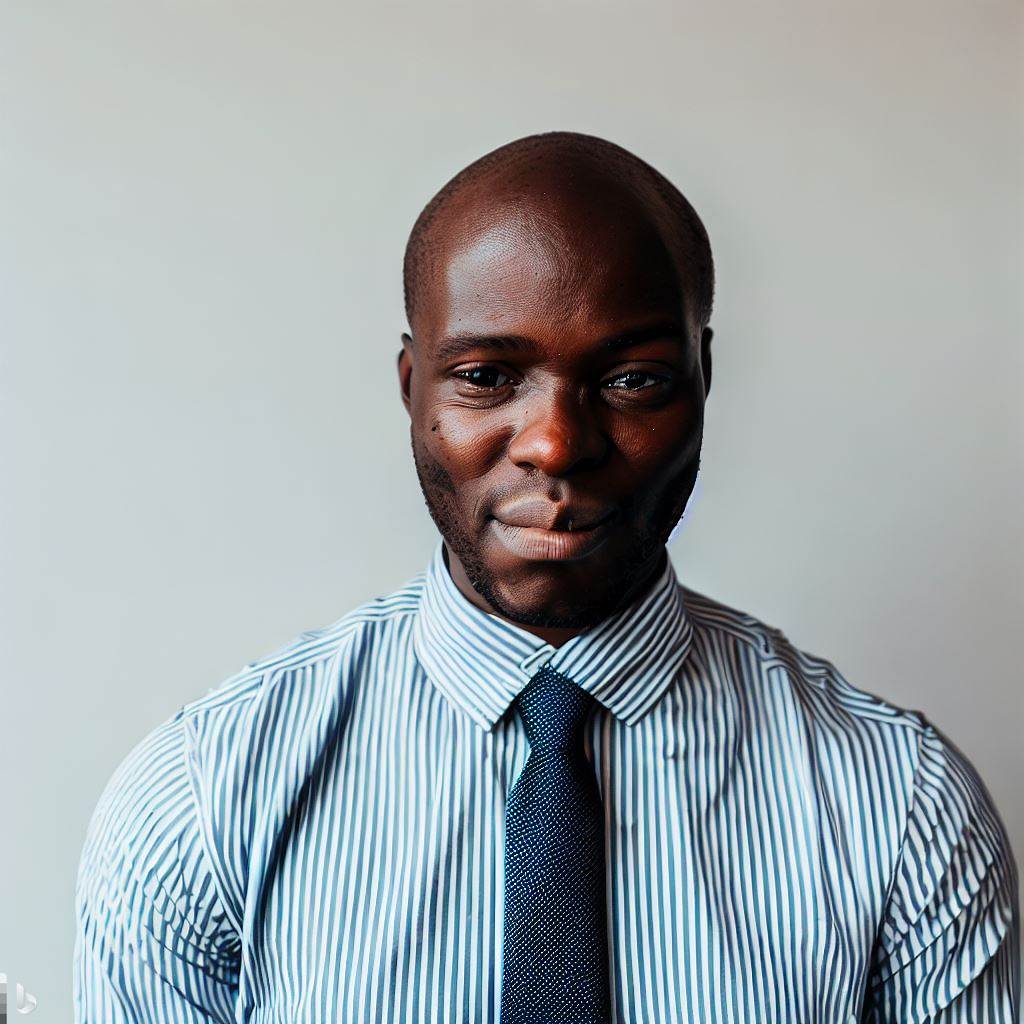Introduction
Cultural Sensitivity as a Health Educator in Nigeria is a crucial aspect of healthcare, particularly in a diverse country like Nigeria.
Understanding and respecting the cultural beliefs, values, and practices of individuals is essential for providing effective and patient-centered care.
Health educators play a vital role in promoting cultural sensitivity in Nigeria.
They bridge the gap between healthcare providers and patients, serving as intermediaries who can effectively communicate and address cultural differences in healthcare settings.
By being culturally sensitive, health educators can enhance the quality of healthcare by ensuring that it is respectful, inclusive, and tailored to the needs of diverse communities.
They advocate for cultural competence among healthcare providers, encouraging them to develop awareness and understanding of different cultural backgrounds.
In addition, health educators educate communities about the importance of cultural sensitivity in healthcare.
They organize workshops, seminars, and awareness campaigns to promote cross-cultural understanding and eliminate biases and prejudices.
By doing so, they contribute to the creation of a more inclusive and equitable healthcare system in Nigeria.
Moreover, health educators collaborate with other healthcare professionals to develop culturally sensitive policies and practices.
They actively participate in the design and implementation of strategies that address cultural barriers and promote health equity. In the end, cultural sensitivity is crucial for health educators in Nigeria.
By being culturally sensitive, they can promote understanding, respect, and inclusivity in healthcare, leading to improved health outcomes for diverse populations.
Understanding Nigerian Culture
Nigeria, known as the “Giant of Africa,” is a country rich in diverse cultures, ethnicities, and languages.
With over 250 ethnic groups, Nigeria’s cultural landscape is a treasure trove that health educators must understand to address cultural sensitivity effectively.
A. Overview of Nigeria’s Diverse Cultures, Ethnicities, and Languages
Nigeria is home to various ethnic groups, each with its unique culture, customs, and beliefs.
The major ethnic groups include the Hausa-Fulani, Yoruba, and Igbo, but many smaller groups contribute to the country’s cultural richness. These ethnic groups often have distinct languages, traditions, and practices.
The Hausa-Fulani, predominantly found in Northern Nigeria, have a strong Islamic influence on their culture and language.
The Yoruba, located in the southwestern region, have a rich heritage of art, music, and folklore.
The Igbo, hailing from the southeastern region, have a close-knit community and value traditional ceremonies and rituals.
B. Cultural Practices and Beliefs Impacting Healthcare Decisions
Cultural practices and beliefs play a significant role in Nigerian healthcare decisions. Traditional medicine, herbal remedies, and spiritual healing are deeply ingrained in Nigerian cultural beliefs.
Many Nigerians consult traditional healers or spiritual leaders alongside seeking medical advice.
This interaction highlights the importance of acknowledging and integrating traditional practices into healthcare interventions.
Religion also heavily influences Nigerian healthcare decisions. Nigeria is divided between Christianity, Islam, and traditional indigenous religions.
Beliefs surrounding illness causation and treatment vary across these religious groups.
Understanding and respecting diverse religious beliefs are crucial for health educators in providing culturally sensitive healthcare information and services.
C. Common Health Disparities Among Different Nigerian Communities
Health disparities exist among different Nigerian communities due to a variety of factors.
Socioeconomic status, access to healthcare facilities, education levels, and cultural beliefs all contribute to these disparities. Maternal and child health disparities are prevalent in Nigeria.
Limited access to prenatal care and skilled birth attendants, combined with cultural practices such as female genital mutilation, contribute to high maternal and infant mortality rates.
Health educators must target these issues to improve the health outcomes of mothers and children.
Infectious diseases also pose a significant health disparity in Nigeria. Malaria, HIV/AIDS, and tuberculosis remain persistent challenges.
Awareness campaigns, education about preventive measures, and improved access to healthcare facilities are vital in combating these diseases among all Nigerian communities.
Chronic diseases, such as hypertension and diabetes, are on the rise in Nigeria. Unhealthy eating habits, sedentary lifestyles, and limited health literacy contribute to the increasing prevalence of these conditions.
Health educators can address this disparity by promoting healthy lifestyles and providing accessible information about prevention and management.
In fact, as health educators, understanding Nigerian culture is essential in addressing cultural sensitivity effectively.
Nigeria’s diverse cultures, ethnicities, and languages must be respected and integrated into healthcare practices.
Acknowledging cultural practices and beliefs impacting healthcare decisions and addressing health disparities among Nigerian communities are crucial steps toward providing equitable and effective healthcare for all Nigerians.
Read: Interviews: Health Educators Discuss Their Experiences in Nigeria
Challenges in Addressing Cultural Sensitivity
A health educator in Nigeria faces several challenges when it comes to addressing cultural sensitivity.
These challenges revolve around a lack of awareness and knowledge about cultural differences, communication barriers, and stereotypes and biases affecting cultural sensitivity efforts.
A. Lack of awareness and knowledge about cultural differences
Many health educators in Nigeria lack awareness about the diverse cultural differences that exist within their country.
Without a deep understanding of different cultural practices and beliefs, it becomes difficult to provide culturally sensitive health education.
Health educators need to educate themselves about various cultures in order to effectively address the unique needs and concerns of different communities.
Without proper awareness and knowledge, health education can inadvertently perpetuate stereotypes and misunderstandings.
B. Communication barriers: language, dialects, and non-verbal cues
Language barriers pose significant challenges in effectively addressing cultural sensitivity in Nigeria.
Nigeria is a linguistically diverse country, with over 500 languages spoken, making it difficult to communicate health information accurately.
Health educators must find ways to bridge the communication gap by using translators or interpreters when necessary.
Understanding local dialects and non-verbal cues also plays a crucial role in ensuring effective communication.
C. Stereotypes and biases affecting cultural sensitivity efforts
Stereotypes and biases can hinder health educators’ efforts to address cultural sensitivity. Preconceived notions about certain cultural practices may lead to misconceptions and generalizations.
Health educators must constantly challenge their own biases and strive for cultural humility.
By acknowledging and questioning stereotypes, health educators can create a safe and inclusive environment for all communities.
In short, health educators in Nigeria face various challenges when it comes to addressing cultural sensitivity.
These challenges include a lack of awareness and knowledge about cultural differences, communication barriers, and stereotypes and biases affecting cultural sensitivity efforts.
Overcoming these challenges requires continuous learning, effective communication strategies, and a commitment to cultural humility.
Read: Role of Health Educators in Addressing Nigeria’s Health Crises
Strategies to Enhance Cultural Sensitivity
As a health educator in Nigeria, addressing cultural sensitivity is crucial for effective healthcare delivery.
By implementing strategies that enhance cultural sensitivity, health educators can bridge the gap between Western medicine and traditional practices.
These strategies include conducting cultural assessments, utilizing appropriate communication tools, collaborating with community leaders and indigenous healthcare providers, incorporating traditional healing practices and herbal remedies, and empowering local communities for informed healthcare decision-making.
A. Conducting cultural assessments to identify specific needs
Health educators must conduct cultural assessments to understand the unique needs, beliefs, and values of the communities they serve.
This assessment helps identify specific cultural practices, taboos, and preferences related to health and healthcare.
By recognizing and respecting these cultural factors, health educators can tailor their interventions to better address the community’s needs, promoting engagement and inclusivity.
B. Utilizing culturally appropriate communication tools
Effective communication is vital in healthcare education. Health educators must utilize communication tools that are culturally appropriate and easily understood by the community.
This includes translating materials into local languages, using visual aids, and ensuring messages align with cultural beliefs.
Clear and culturally sensitive communication can foster trust, engagement, and comprehension among community members, ultimately leading to more positive health outcomes.
C. Collaborating with community leaders and indigenous healthcare providers
Collaborating with community leaders and indigenous healthcare providers is essential for building trust and understanding cultural practices.
Engaging these key stakeholders promotes cultural competence, as they possess invaluable knowledge and insights into traditional healing practices.
By partnering with them, health educators can co-design interventions and programs that blend Western medicine with local traditions, addressing health issues more effectively and respectfully.
D. Incorporating traditional healing practices and herbal remedies
Incorporating traditional healing practices and herbal remedies into healthcare interventions can help embrace cultural diversity and honor local traditions.
Health educators can work alongside traditional healers, respecting their expertise and incorporating their practices into treatment plans when appropriate.
This integrated approach recognizes the value of traditional medicine while ensuring it complements evidence-based Western medicine, providing a more comprehensive and culturally sensitive healthcare experience.
E. Empowering local communities for informed healthcare decision-making
Empowering local communities is essential for promoting informed healthcare decision-making.
Health educators can facilitate community dialogues, workshops, and training sessions to enhance health literacy and encourage community members to actively participate in decision-making processes.
By involving the community in health-related discussions, health educators can ensure that healthcare services align with local values, preferences, and needs, resulting in improved healthcare outcomes.
In a nutshell, addressing cultural sensitivity as a health educator in Nigeria requires the implementation of various strategies.
- Conducting cultural assessments,
- utilizing appropriate communication tools,
- collaborating with community leaders and indigenous healthcare providers,
- incorporating traditional healing practices,
- and empowering local communities are all key approaches to promoting cultural sensitivity and fostering effective healthcare delivery.
By embracing cultural diversity and respecting traditional practices, health educators can bridge the gap between different healthcare systems and create a more inclusive and patient-centered approach to healthcare in Nigeria.
Read: How to Find Health Educator Job Opportunities in Nigeria

Training and Education for Health Educators
A. Importance of Cultural Competence Training for Health Educators
- Cultural competence training is crucial for health educators to effectively address cultural sensitivity in Nigeria.
- It helps them understand diverse beliefs, values, and practices of different communities.
- Cultural competence training enhances their ability to provide culturally appropriate health education.
- It builds trust and rapport between health educators and the Nigerian community they serve.
- Cultural competence training reduces the risk of unintentional discrimination and stereotyping.
- It promotes equitable access to healthcare information and services for all individuals in Nigeria.
B. Incorporating Cultural Sensitivity in Health Education Curricula
- Health education curricula should include modules on cultural sensitivity and cultural competence.
- This ensures that health educators are well-prepared to address the unique cultural context in Nigeria.
- Cultural sensitivity topics can include understanding traditional health beliefs and practices.
- It can also cover effective communication strategies with diverse populations in Nigeria.
- Health education curricula should incorporate case studies and real-life scenarios to enhance cultural understanding.
- By incorporating cultural sensitivity, health education becomes more relevant and effective in Nigeria.
C. Enhancing Cross-Cultural Communication Skills
- Health educators need to develop strong cross-cultural communication skills to effectively engage with diverse populations.
- Communication techniques such as active listening and empathy can bridge cultural gaps.
- Learning local languages or utilizing interpreters can improve understanding and trust.
- Non-verbal communication cues should be considered, as they vary across cultures.
- Understanding cultural nuances in body language, gestures, and social norms is essential.
- Enhanced cross-cultural communication skills foster respectful and meaningful interactions in Nigeria.
D. Providing Continuous Professional Development Opportunities
- Health educators should have access to continuous professional development opportunities to enhance cultural competence.
- Workshops, seminars, and conferences can provide updated knowledge on cultural sensitivity.
- Peer learning sessions allow educators to share experiences and learn from each other.
- Collaborating with community leaders and organizations helps in understanding specific cultural needs.
- Incorporating feedback from the Nigerian community enhances the effectiveness of health education programs.
- Continuous professional development ensures health educators stay updated and adaptable to the evolving cultural landscape in Nigeria.
- In essence, training and education for health educators play a crucial role in addressing cultural sensitivity in Nigeria.
- Cultural competence training helps educators understand diverse beliefs and practices, while incorporating cultural sensitivity in curricula ensures relevance and effectiveness.
- Enhancing cross-cultural communication skills and providing continuous professional development opportunities promote respectful and impactful health education in Nigeria.
Read: Graduate Studies: Top Nigerian Universities for Health Education
Case Studies and Best Practices
A. Examples of successful cultural sensitivity initiatives in Nigeria
- The use of traditional healers as community health workers to promote health awareness.
- Partnering with local religious leaders to address health issues and promote preventive measures.
- Developing culturally appropriate educational materials and resources in local languages.
- Engaging community members in the design and implementation of health programs.
B. Lessons learned from these initiatives
- Recognizing and respecting cultural beliefs and practices is crucial in gaining community trust.
- Collaborating with local stakeholders helps in identifying culturally-tailored solutions.
- Understanding the socio-economic context is important for effective implementation.
- Continuous evaluation and feedback from the community are essential for sustainable programs.
C. The impact of cultural sensitivity on improving health outcomes
Health outcomes improve when health educators prioritize cultural sensitivity:
- Increased community participation and engagement in health initiatives.
- Enhanced trust between health providers and community members, leading to better access to healthcare.
- Improved understanding and acceptance of health messages and behaviors.
- Reduced stigma and discrimination related to health issues.
- Cultural sensitivity fosters positive relationships, resulting in better health results for all individuals.
Read: Insights into the Teaching Profession in Nigeria Today
Overcoming Resistance and Addressing Challenges
Overcoming resistance and addressing challenges in promoting cultural sensitivity as a health educator in Nigeria requires the implementation of effective strategies.
It is essential to manage resistance through proactive measures that cultivate an environment of openness and acceptance.
A. Strategies to Manage Resistance to Cultural Sensitivity Efforts.
One strategy to manage resistance is to identify its sources and understand the underlying reasons. By doing so, it becomes possible to address specific concerns and tailor approaches accordingly.
Communicating the importance of cultural sensitivity and highlighting its benefits to all stakeholders is crucial for creating awareness and promoting buy-in.
Health educators should receive appropriate training and education to enhance their cultural competence.
By continuously developing their knowledge and skills, they can effectively engage with diverse populations and address cultural differences within their practice.
Involving community leaders and influential members in the planning and implementation process can help overcome resistance.
Their endorsement and support can significantly impact the acceptance and success of cultural sensitivity efforts.
It is crucial to address fears, concerns, and misconceptions through open dialogue, emphasizing the positive outcomes and dispelling myths.
Publish Your Professional Profile, Business or Brand
Showcase your expertise, gain trust, and boost visibility instantly on Professions.ng.
Publish NowB. Addressing Misconceptions and Stereotypes
Addressing misconceptions and stereotypes is essential in fostering cultural sensitivity.
Educating the community about the harmful effects of stereotypes and providing accurate information about different cultures can help challenge prejudiced views.
Cultural exchange programs and highlighting shared values promote understanding and empathy.
Health educators should actively involve individuals from diverse cultures in designing and implementing health education programs.
This participation ensures that programs are culturally appropriate and inclusive, challenging misconceptions and breaking down barriers.
Encouraging open discussions and respectful debates further enriches the learning experience.
C. Building Trust and Engaging with Local Communities
Building trust and engaging with local communities is fundamental in promoting cultural sensitivity. Health educators must develop genuine relationships with community members and key stakeholders.
Respecting and acknowledging local customs, traditions, and beliefs is essential for building trust.
Collaborating with local organizations and involving community members in decision-making processes further strengthens engagement and inclusivity.
Organizing community events and workshops that promote cross-cultural understanding can foster collaboration and appreciation of diversity.
By providing opportunities for interaction and learning, barriers can be broken down, and cultural sensitivity can be further enhanced.
Basically, overcoming resistance and addressing challenges in promoting cultural sensitivity as a health educator in Nigeria requires a multi-faceted approach.
By implementing strategies to manage resistance, addressing misconceptions and stereotypes, and building trust with local communities, cultural sensitivity efforts can thrive.
Ultimately, this will lead to more effective health education programs and improved health outcomes for all.
Read: A Comprehensive Overview of Special Education in Nigeria
Conclusion
Cultural sensitivity is crucial for health educators in Nigeria to effectively address healthcare disparities. Health educators must prioritize cultural sensitivity in their practice to provide holistic healthcare.
Increased cultural sensitivity in healthcare can lead to improved patient satisfaction, compliance, and overall health outcomes.
A. Importance of Cultural Sensitivity
- Respect diverse beliefs, practices.
- Build trust, effective communication.
- Tailor interventions for success.
B. Call to Action: Prioritize Cultural Sensitivity
- Embrace cultural competence.
- Incorporate local perspectives.
- Bridge health disparities effectively.
C. Potential Positive Outcomes of Cultural Sensitivity
- Enhanced patient engagement.
- Improved treatment adherence.
- Stronger community partnerships.
- Healthier, more inclusive outcomes.




